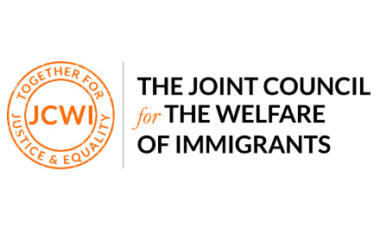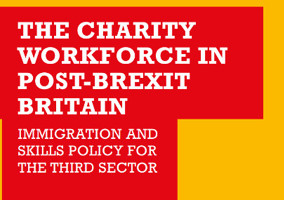An immigration charity has accused the government of trying to pass on its Brexit problems to civil society, after the sector was invited to take part in a scheme to become immigration advisers.
The Joint Council for the Welfare of Immigrants (JCWI) was responding to news that charities could get a larger role in helping EU citizens confirm their right to live in the UK.
The Office of the Immigration Services Commissioner (OISC) and the Charity Commission announced a scheme this week, encouraging charities to apply to become immigration advisors using a fast-track system which could see organisations qualify in between four and six weeks.
The scheme is being run by the OISC.
There would also be no written test, which was previously required of anyone who wanted to give immigration advice.
Once registered, charities would be allowed to give basic, or Level 1, immigration advice, and only to help European citizens applying to stay in the UK.
The changes come as the Home Office prepares to handle applications through its settled status scheme from the end of March, when European citizens try to confirm their right to stay here after Brexit. There are an estimated three million EU nationals living in the UK.
The Charity Commission said in a statement that the scheme “is aimed at smaller, community-based charities and other organisations, including faith-based and local advice groups.”
By inviting charities to participate in the scheme, the government is moving away from tight restrictions governing who can give immigration advice.
The Immigration and Asylum Act in 1999 made it a criminal offence to give immigration advice without OISC-approved qualifications.
‘Completely inadequate’
Chai Patel, legal policy director at the JCWI, agreed that current OISC rules are “a big barrier to people getting advice,” but criticised the new scheme.
“Where is the legal aid? Where is the massive public information campaign you would need?” Patel asked.
“The government is making a tiny amount of funds available and basically saying it’s now civil society’s problem. It’s completely inadequate to deal with the scale of the problem we are facing.
“[The settled status scheme] might get very confusing very quickly, and an OISC Level 1 qualified person might not be the best person to deal with that.”
Yva Alexandrova Meadway, the policy and campaigns manager at the Migrant Resource Centre, agreed that charities applying under the new scheme may end up facing more pressure.
If they took on cases which turned out to be more complex, she explained, they would need the capacity to pass this onto more qualified advisors, “but smaller charities wouldn’t have this.”
‘Sensible response to relax the rules’
However, Dan Corry, chief executive at the think tank NPC, argued that the changes were helpful when “you’ve got a network of charities and community groups out there already who can do a job for you”.
NPC manages the Transition Advice Fund, which helps charities who are working with European citizens to access the settled status scheme.
Corry said: “The government has these rather strict rules on who can give immigration advice and in a sense they are relaxing them.
“It is a very sensible response and should lead to more people getting the settled status they’re entitled to.”
A Charity Commission spokesperson confirmed that OISC will regulate the scheme, but added that if OISC found any charity to be in breach of its rules then the Commission would look into that case “in accordance with our risk framework to determine what action, if any, is required.”
Editor's note: This article has been updated at the request of the Charity Commission to clarify that scheme is being run by OISC
|
Related articles











